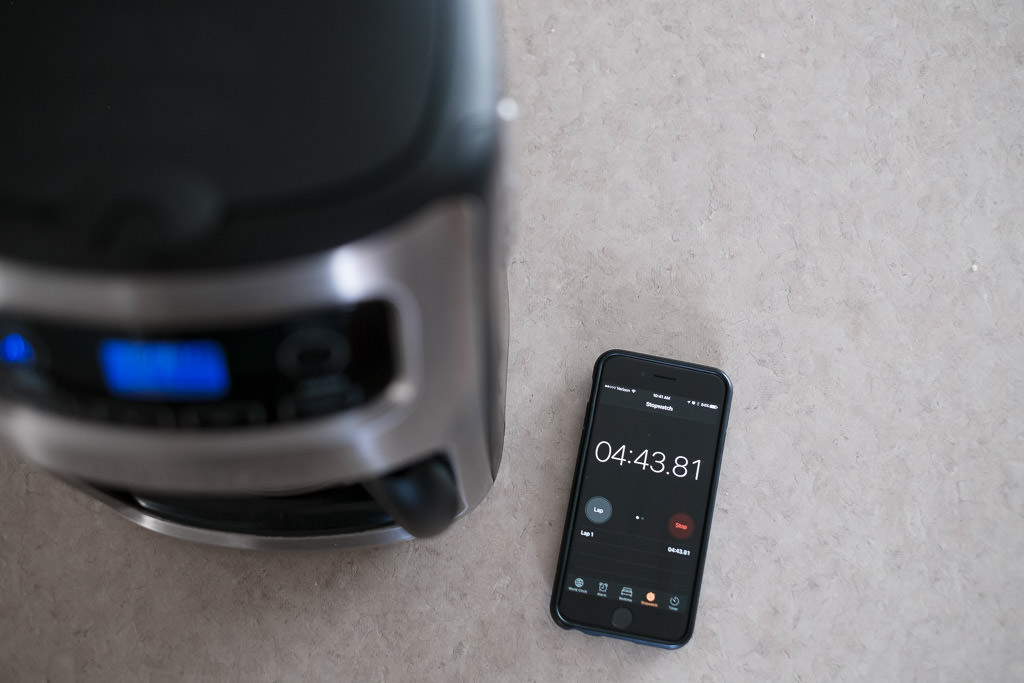Good Coffee, Normal Coffee Maker, Part 2 - Brew Time
"Can you make a good pot of coffee in a regular coffee maker?" In preparation for launching this blog, I asked for input on questions people had about coffee. This question hit the top of the list as one of the most frequently asked questions. It makes sense. While I may find satisfaction in making each cup of coffee individually, others simply want good coffee without having to devote 20 minutes of their morning to the process. So, in an effort to make good coffee more accessible, I borrowed a friend's coffee maker to see what we could get out of it. Over the next couple of posts, I'll cover the various experiments I ran and what I found out so you can up your coffee game with the same maker.
Determining Factors to Quality
To determine whether or not the coffee maker had the capability of producing good coffee we need to evaluate a couple of key factors. Temperature of the water, brew time, and ratio accuracy all contribute heavily to the extraction process. The results of these tests will likely vary between brands and coffee makers, so you may need to dial in the adjustments for your specific coffee maker. If you have a coffee maker and you choose to figure this all out for you brand, I'd love to hear what you found so I can share it with others!
Coffee Maker Brew Time
Accord to the NCA, the National Coffee Association, in a drip coffee system the water should be in contact with the grounds for approximately 5 minutes for optimal extraction. Extended brew times can over-extract the coffee resulting in a bitter cup. On the other hand, shorter brew times won't fully extract all the solvents result in a weak, flat cup.
The Test
For this test, I simply began a timer when I switch the power button on and recorded the time when the machine beeped, indicating the brew cycle was complete. I recorded the time again when the water ceased to drip into the pot. The records follow:
- 500g of water in: 5 minutes, 10 seconds to beep. 7 minutes, 32 seconds total
- 1160g of water: 13 minutes to beep. 15 minutes, 10 seconds total
- 1462g of water: 15 minutes, 32 seconds to beep. 18 minutes, 40 seconds total
Conclusion
As you can see, the brew times exceeded the 5 minute optimal time. The lack of visibility make discerning how much time the water actually contacts the grounds a difficult task. It might just take a long time for the coffee maker to pump the water from the reservoir to the dispersion head. This doesn't necessarily mean this coffee maker can't make good coffee, but it will likely be a limiting factor to the quality of coffee you can achieve.
Cleaning
While testing, cleanliness revealed itself as an important factor affecting the brew times. This coffee maker hadn't been cleaned in a while. The water I ran through it came out murky and coffee tinted. Prior to cleaning, I recorded brew times 10-15% longer than I've recorded in the above test. Use the following steps to clean your coffee maker:
- Mix a Vinegar solution (1 part vinegar, 2 parts water)
- Run the solution through the coffee maker (Fair warning, this process does not smell good)
- Run plain water through a couple times to rinse out the vinegar, preventing any residual affect on coffee flavor.
Do this process every couple of months, or maybe every month if you don't have a water softener. Keeping your coffee maker clean will make sure old coffee oils aren't tainting your brew and the water flows as freely as possible.
Don't miss Part 1, and keep an eye out for Part 3!
As always, if you have any questions, comments, or ideas for a future post drop a comment below, contact me via email, or connect with me on social media!
Stay handsome


